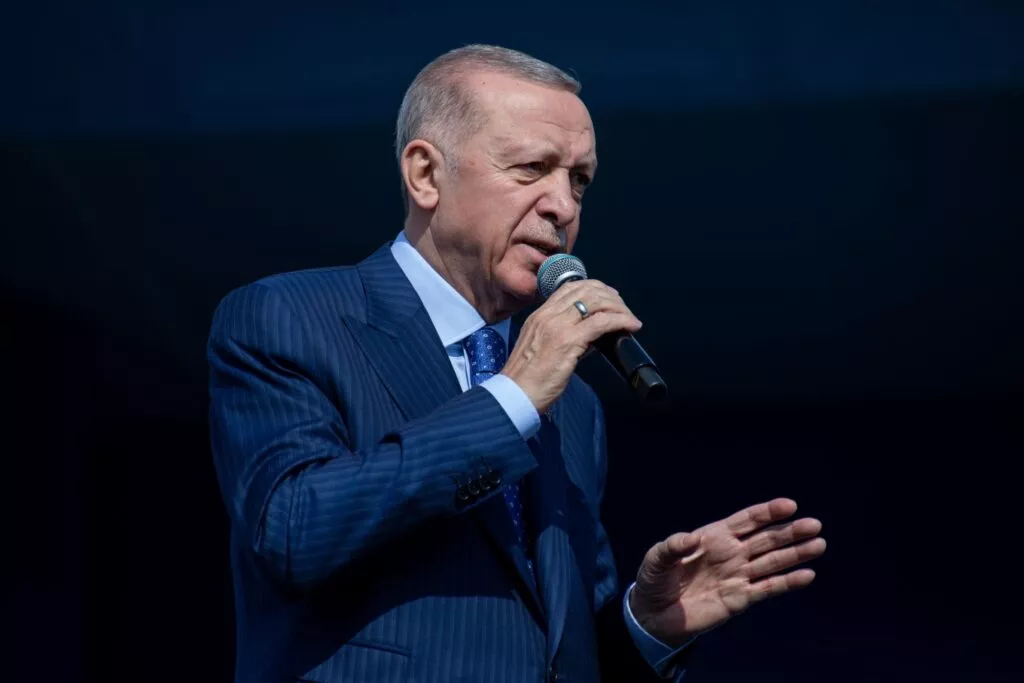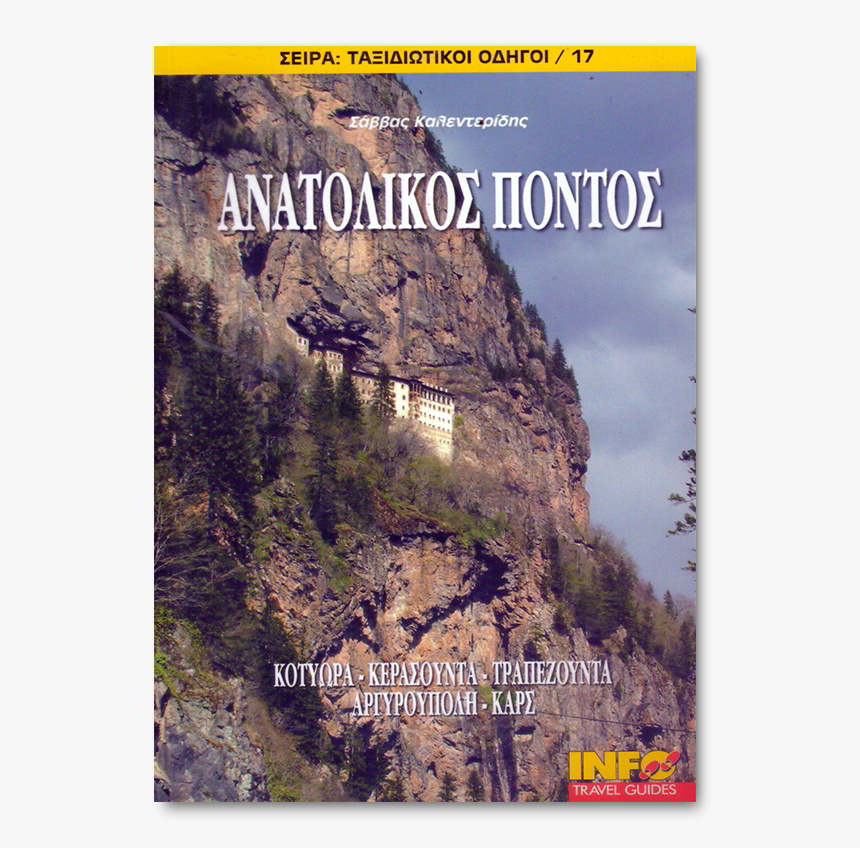Ισλάμ
Bin Laden’s Death: Boosting Obama’s Chances of a Second Term; But Ending US Access to Central Asia?
© 2011 Global Information System/ISSA. Special Report
Analysis. By Gregory R. Copley, Editor, with Yossef Bodansky, Senior Editor, GIS/Defense & For-eign Affairs. The killing in Abbottabad, Pakistan, of al-Qaida founder and leader Osama bin Laden by US SEAL Team Six on May 1, 2011, should be expected to accelerate the US formal military withdrawal from Afghanistan and Pakistan.1 This perceived victory — “justice has been done”, the US President said — will be portrayed to the US electorate as evidence that the war against terrorism had, essentially, been won and this would allow US Pres. Barack Obama’s to implement his stated objective of terminating combat operations in the region as quickly as possible, within 2011.
This would help facilitate his re-election to the Presidency in late 2012. The death of bin Laden could indeed greatly assist in Pres. Obama’s re-election to a second Presidential term, and would substantially transform the global strategic environment. However that “substantial trans-formation” would be the removal of the US from meaningful access to Central Asia over the coming years, limiting future US strategic involvement in the region. Pres. Obama said, in a triumphal television broadcast late on May 1, 2011: “Justice has been done.”2 The words echoed through his political team the following day as the justification line for the withdrawal of combat forces within 2011, the President’s stated goal. The remark had the same resonance as the mes-sage of his predecessor, US Pres. George W. Bush’s, on May 1, 2003, following the overthrow of the Ira-qi Government of Pres. Saddam Hussein. That Bush speech was dubbed the “mission accomplished” speech because a banner stating that was the backdrop for the President’s remarks aboard the carrier USS Abraham Lincoln. In other words, the phrase “justice has been done”, like the phrase “mission accomplished” implies a mi-lestone in the US political process, but has little to do with the actual conflict. The so-called “global jihad” which al-Qaida inspires (but no longer leads) will continue: the jihadist behavior is a sign of massive fru-stration in many Muslim populations. Political and security challenges will continue in Afghanistan and Pakistan. Will the domestic outcomes in Afghanistan and Pakistan change if the US ends combat opera-tions and withdraws the bulk of its forces (and those of the ISAF Coalition) from those countries? Almost certainly, but will it be changed for increased or decreased stability? As the US forces leave Afghanistan, so, too, will the ISAF Coalition troops. The debate is whether or not the Afghan Government of Pres. Hamid Karzai has the strength to sustain stability in Afghanistan without ISAF troops. That will depend on the extent to which Pres. Karzai can negotiate a compromise with the Afghan Taliban movement. The US and Afghan governments have for some time been engaged in direct negotiations with the Taliban, and it is possible that the US may attempt to continue that dialog after dis-engagement in the kinetic war. Almost certainly, a post-withdrawal Afghan Government would need — if there is to be stability — to adopt a different model of governance, most likely more along the lines of the pre-Soviet invasion Gov-ernments of Mohammed Daud Khan, who formed the Republic of Afghanistan in 1973; or the Govern-ment of his predecessor and relative, King Mohammed Zahir Shah (who ruled from 1933 to 1973). This
Extract from Defense & Foreign Affairs Special Analysis 2
May 3, 2011 D&FA Confidential © 2011 Global Information System, ISSA
would, then, be a model of only loose federalism, allowing maximum autonomy for the regions, and max-imum support from neighbors. In the past, neighborhood support meant Iran and the USSR; today it would mean Iran and the People’s Republic of China (PRC). Moreover, the difficult relationship between Afghanistan and Pakistan could also settle into an easier modus vivendi. Islamabad and Kabul have, of late, resolved to work together to consolidate stability in the region irrespective of the US position. The anticipated expedited US exit — now that Osama bin Laden is dead — should be expected to make things easier for both countries. Indian access to Kabul would return to a difficult status, given geographic constraints. This in turn may inspire greater cooperation with Pakistan and Afghanistan to deliver a stable energy pipeline system from Central Asia through Afghanistan and Pakistan to India. It was only on April 28, 2011, three days before the killing of Osama bin Laden, that the Indian Government agreed to finalize and sign a gas supply agreement with Turkmenistan, Afghanistan, and Pakistan (collectively referred to as TAP). The deal for the proposed 1,700km TAP pipeline would be signed by the end of July 2011, if all progressed well, and would cost $7.6-billion, delivering gas to Afghanistan, Pakistan, and India. This undertaking marks a sig-nificant joint enterprise which would introduce an element of caution into all three regional players. There is little doubt, too, that the “terrorism” of the region would take on a very new shape following a US withdrawal. Increasingly over recent years, the US Central Intelligence Agency (CIA) has infiltrated, co-opted, or created radical groups in parts of Pakistan as a means of driving the agenda and, in part, to gain access to the main jihadi and terrorist leaders, such as bin Laden. One of the main points of conten-tion between the CIA and the Pakistani Inter-Services Intelligence (ISI) has been the extent to which ISI had observed the CIA actually sponsoring and undertaking terrorist activities inside Pakistan, events the media and the US blamed on ostensibly domestic Pakistani tribal or jihadist groups.3 The CIA, also blamed ISI for supporting other radical or tribal groups in Pakistan, many from the Tribal Areas. Each agency had its reasons for undertaking their various proxy activities, but, as one US analyst admitted: “The difference was that the CIA was killing Pakistanis in Pakistan; ISI was not killing Americans in Pakis-tan or the US.” There would be concern in Indian Government circles that an end to the Afghan war — from an interna-tional perspective, of not domestically — would free ISI and the Pakistan military to return their attention to the disputed area of Jammu and Kashmir. In reality, however, that dynamic has also changed, and there is far greater impetus for an acceptance of the territorial status quo than before the Afghan war. For one thing, the present territorial status is guaranteed, to a certain extent, by a now regionally dominant PRC, which needs the Azad (Free) Kashmir region which Pakistan controls to ensure adequate land access from the PRC to the Arabian Gulf. India cannot now effectively challenge this.4 Moreover, India — with the new TAP pipeline and the need for overland access to the Central Asian mar-kets — cannot afford to permanently alienate Pakistan, the territory of which it needs for India’s own stra-tegic prosperity. The US-Pakistan strategic relationship has now effectively run its course, much to the chagrin of most senior Pakistani officials — and many ordinary Pakistanis — who have consistently expressed a desire for a stable and consistent alliance with the US. The US, however, has played on this over the decades, pulling a willing Pakistani Government into one US vital mission after another (including the US move un-der Pres. Richard Nixon to open relations with the PRC in 1971-72, and various moves to counter-balance pro-Soviet India, and effectively the USSR, at various times during the Cold War). What typified US approaches to Pakistan over the decades was the fact that US officials felt that Pakistan should do whatever the US demanded of it, and that Pakistani needs and realities (and laws) were not a considera-tion, regardless of the outcome. US officials have almost universally failed to recognize that Pakistani priorities should be considered. As a result, any attempts by Pakistani officials to “justify” their actions by citing Pakistani perspectives or priorities have been viewed by US officials as signs of a lack of Pakistani trustworthiness as an ally, despite the fact that in all engagements in which Pakistan has supported the US — including the current operations in Afghanistan — Pakistan has paid the highest price in terms of lives lost, and economic dislocation. The result now is that most Pakistani officials completely distrust US officials, at least on matters of secu-rity, despite the fact that the US has also moved rapidly with its Special Forces and others to help alle-viate suffering in major Pakistani natural disasters, such as the 2010 flooding and earlier earthquake. The
Extract from Defense & Foreign Affairs Special Analysis 3
May 3, 2011 D&FA Confidential © 2011 Global Information System, ISSA
bottom line is that the separation between Pakistan and the US is, from Islamabad’s standpoint, one of “more in sorrow than in anger”. The US has expressed dissatisfaction with the Pakistan People’s Party (PPP)-dominated Government of Pres. Asif Ali Zardari and Prime Minister Yousaf Raza Gilani, over issues of mismanagement and corrup-tion, forgetting that it was the US Government itself which forced the resignation of Pres. Pervez Mushar-raf, insisting on the restoration of the PPP under Benazir Bhutto and PML leader Nawaz Sharif. Now, with the Government almost in paralysis, the Pakistani military is determined not to be pressured again into removing the civilian leadership, allowing the PPP Government to complete a full term in office during the coming year, allowing the electorate to decide whether it will be re-elected. But Pakistan is less likely to heed Washington instead of Beijing as it moves forward. On Saturday, April 16, 2011, Prime Minister Yousuf Raza Gilani led a high-level delegation on an unan-nounced visit to Kabul to further the peace process and in order to further enhance the “deep-rooted bonds of fraternal solidarity”. The other key members of the delegation were Gen. Ashfaq Parvez Kayani, Chief of Army Staff, and Lt.-Gen. Ahmad Shuja Pasha, Director-General of ISI. The Pakistani Ministers of Defence, Interior, Finance, Minister of State for Foreign Affairs, and Foreign Secretary Salman Bashir also participated in the “delegation level talks” between the two countries. Prime Minister Gilani and Pres. Karzai also had a one-on-one meeting in which Gilani secured Karzai’s “irreversible commitment” to the peace process favored by Pakistan at the expense of “foreign occupation powers”. Pres. Karzai accepted Gilani’s position that “no foreign formula will be accepted for Afghanistan solution”. Karzai also described the discussion with Gilani as “historic” and stressed that both leaders “today have clarity which never ex-isted earlier”. Prime Minister Gilani and Pres. Karzai agreed to “establish the Afghanistan and Pakistan Joint Reconcili-ation and Peace Commission for facilitating and promoting reconciliation and peace” in the region. The commission would be co-headed by both leaders, in person. The joint commission would work to expedite the process of “an inclusive process of grand national reconciliation in which all Afghans have a stake.” In practical terms, this was likely to be a two-tier Afghanistan-Pakistan Joint Commission “for facilitating and promoting reconciliation and SEQ CHAPTER h r 1peace”. The first tier would include the chief execu-tives and foreign ministers, along with chiefs of the military and intelligence services of the two countries. The second tier would comprise senior officials of both foreign ministries, military, and intelligence servic-es. Prime Minister Gilani, Lt.-Gen. Pasha and key officials also met former president Borhanuddin Rabbani (chairman), Maulawi Attaullah Ludin (Vice-Chairman), and key members of the High Peace Council to discuss the further implementation of the peace process. Gilani reiterated Pakistan’s unwavering support to peace and prosperity in Afghanistan. Gilani assured his interlocutors that Islamabad “firmly believe[s] that this process must have full Afghan ownership”, a veiled assertion of Pakistani opposition to a US/NATO role, something which Pres. Karzai also hinted at in his comments about the future of the con-flict following the death of Osama bin Laden. The bilateral talks were expected to continue soon with Pres. Karzai leading a similar delegation to Isla-mabad. So, as Pakistan confirms the PRC as its major strategic partner, it also begins a new relationship with Kabul, and possibly with India. And in all of this, Iran will also figure significantly, given its relationships with the PRC and India, and its need to build its regional position. Footnotes: 1. Some 20 to 25 members of a US Naval Special Warfare Development Group strike team — known colloquially as SEAL Team Six — operating under the authority of the US Central Intelligence Agency (CIA) on May 1, 2011, shot and killed al-Qaida leader Osama bin Laden at a residence in the Thanda Choha suburb of Abbottabad, some 40 miles from the Pakistani capital, Islamabad, and less than a half-day’s drive from the Afghan border. In a 40-minute incursion, which began at appr. 01.00 hrs lo-cal time, two of bin Laden’s couriers, one of bin Laden’s sons, and a woman — reportedly one of bin Laden’s wives who was reportedly used as a “shield” by a man in the 3,000 sq. meter compound — were all shot in killed. Two other women were injured during the exchange of fire. Osama bin Laden
Extract from Defense & Foreign Affairs Special Analysis 4
May 3, 2011 D&FA Confidential © 2011 Global Information System, ISSA
was reportedly asked to surrender, but refused, firing back at the SEALs; he was then shot twice in the head. There was some evidence of possible Pakistan Government complicity — or, more likely, direct involvement of US Special Forces psy-op teams — in the raid given that residents of the imme-diate area were told via loudspeakers issuing commands in Pashto to turn off all lights and stay in-doors as the raid commenced. US Government sources indicated that the compound — considerably larger than most residences in Thanda Choha — had been specially built for bin Laden some five years ago, but local residents indicated that it had been built by tribal Pakistanis from Waziristan more than a decade before the raid, and long before Osama bin Laden had been targeted by the US. 2. Pres. Obama also noted: “The death of bin Laden marks the most significant achievement to date in our nation’s effort to defeat al-Qaida”, a questionable assertion, given that Osama bin Laden’s opera-tional engagement in terrorist activities and planning had been severely constrained some years ear-lier. He was, in essence, a figurehead in forced retirement. His speech contained the remark: “[O]n nights like this one, we can say to those families who have lost loved ones to al-Qaida’s terror: Jus-tice has been done.” 3. CIA contractor Raymond Davis, who, on January 27, 2011, shot and killed two ISI officers assigned to monitor him in Lahore, was reportedly engaged in working with a radical Pakistani group which was engaged in domestic terrorism in Pakistan. Significantly, earlier — mainly in 2009 — Pakistan’s ISI on four separate occasions advise the CIA of the precise location of the leader of the Pushtun Tehrik-i-Taliban Pakistan (TTP), Baitullah Mehsud. The US had accused the ISI of not doing enough to stop Mehsud and his jihadist activities, which were mostly against the Pakistani state. On those four occasions, the US failed to launch UAV strikes against Mehsud. As a result, ISI, on the fifth occasion, told the CIA that the target was al-Qaida number two (now number one) leader, Ayman al-Zawahiri. The US immediately launched a UAV strike on or about August 5, 2009, only later to find that the victim was not Zawahiri, but Mehsud. US officials were angry at ISI for the deception, but to Pakistani officials the event confirmed that the CIA had been sponsoring Mehsud. 4. See: “Pakistan Faces a Brief Period of Turmoil as the PRC Steps Up Relations and the US Searches for a Way Out”, in Defense & Foreign Affairs Special Analysis, December 20, 2010. That report noted: “Pakistan should be expected to enter a watershed period of transformation in 2011, with this dynam-ic having significant ramifications for the conduct and continuance of the Coalition conflict against the Taliban in neighboring Afghanistan as well as for the strategic balance between the People’s Repub-lic of China (PRC) and India. In essence, it should be expected that Pakistan will be dominated by its geopolitical essence: its importance as the key bridge from the Indian Ocean into Central Asia, and from the PRC into the Indian Ocean.” That report continued: “The visit to Pakistan by PRC Premier Wen Jiabao, starting on December 16, 2010, highlighted the reality that Beijing now feels that the US ‘primacy’ in Pakistan’s strategic posture has effectively begun to erode, and that it was now time for the People’s Republic of China to be seen for what it is: Pakistan’s most stable and significant stra-tegic ally.”
May 3, 2011 D&FA Confidential © 2011 Global Information System, ISSA
Founded in 1972. Formerly Defense & Foreign Affairs Daily Volume XXIX, No. 21 Tuesday, May 3, 2011

Video
Ο Ράμα ιδρύει την πρωτεύουσα του Ισλάμ στην Ευρώπη
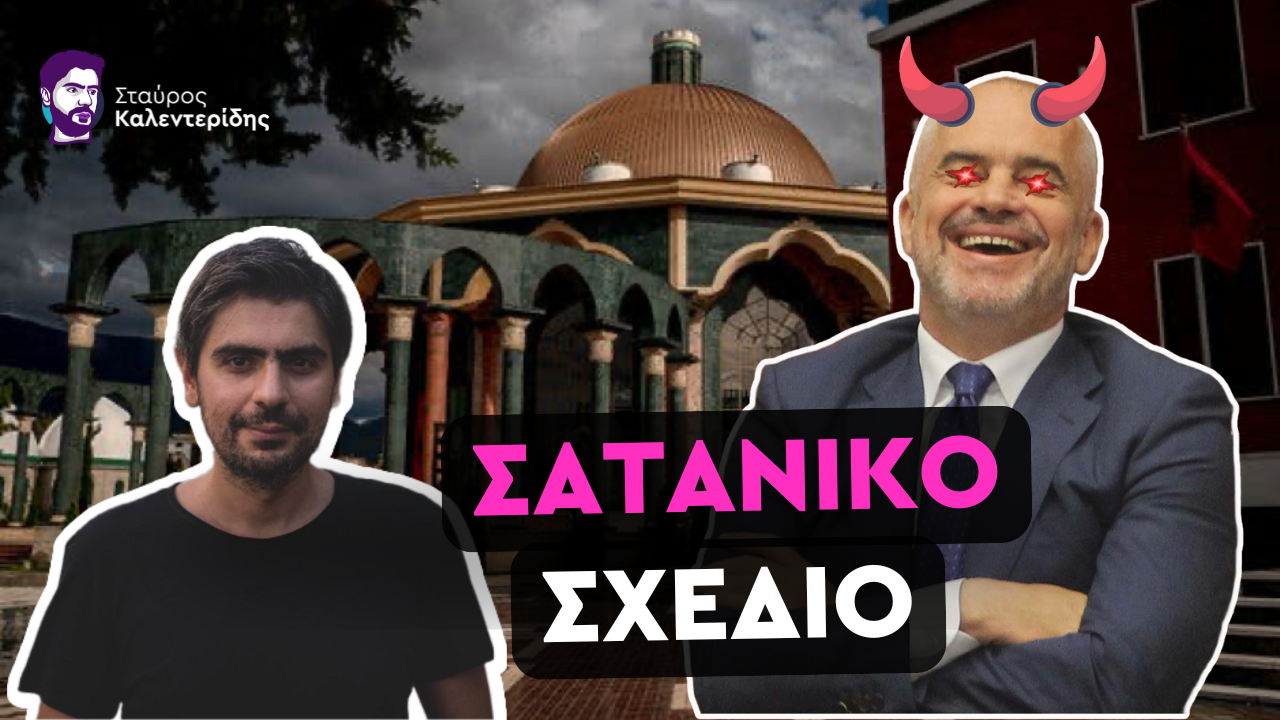
Σταύρος Καλεντερίδης: Τι είναι το νέο κράτος που ιδρύει ο Έντι Ράμα στην καρδιά των Τιράνων;
Σε τι αποσκοπεί ο πρωθυπουργός της Αλβανίας και πώς κερδίζει η Τουρκία μία νέα παρουσία στα βόρεια σύνορά μας.
Ισλάμ
Ολλανδία: «Τρομοκρατικό» το κίνητρο του άνδρα που επιτέθηκε με μαχαίρι σε περαστικούς στο Ρότερνταμ

REUTERS/Piroschka van de Wouw
Η εισαγγελία ανακοίνωσε ότι του ασκήθηκε δίωξη για ανθρωποκτονία και απόπειρα ανθρωποκτονίας με τρομοκρατικό κίνητρο
«Τρομοκρατικά κίνητρα» ενδέχεται να είχε ο άνδρας που εξαπέλυσε επίθεση με μαχαίρι το βράδυ της Πέμπτης, στο Ρότερνταμ, σκοτώνοντας έναν άνθρωπο και τραυματίζοντας έναν ακόμη, σύμφωνα με Ολλανδούς εισαγγελείς.
Ο 22χρονος, που κατάγεται από το Άμερσφουτ, μαχαίρωσε και τραυμάτισε το πρώτο θύμα του σε ένα πάρκινγκ κάτω από τη Γέφυρα του Εράσμου. Στη συνέχεια ανέβηκε στο οδόστρωμα και σκότωσε έναν άλλο άνδρα. Περαστικοί και αστυνομικοί τον ακινητοποίησαν και τον συνέλαβαν.
Δεν απέκλεισαν το ενδεχόμενο να υπάρχει κι άλλο κίνητρο
Η εισαγγελία ανακοίνωσε ότι του ασκήθηκε δίωξη για ανθρωποκτονία και απόπειρα ανθρωποκτονίας με τρομοκρατικό κίνητρο. Πριν από την επίθεση ο νεαρός φέρεται ότι φώναξε πολλές φορές «Αλαχού Ακμπάρ», δηλαδή «Ο Θεός είναι μεγάλος», στα αραβικά.
Πάντως οι εισαγγελείς δεν απέκλεισαν το ενδεχόμενο να υπάρχει και κάποιο άλλο κίνητρο.
Ο ύποπτος ζούσε στο Άμερσφουτ, μια πόλη που απέχει περίπου 80 χιλιόμετρα από το Ρότερνταμ. Οι αυτόπτες μάρτυρες είπαν ότι κρατούσε δύο μεγάλα μαχαίρια και επέλεξε τα θύματά του στην τύχη.
Πηγές: ΑΜΠΕ, AFP, Reuters
Θράκη (Πομακικό)
Θέμα «τουρκικής» μειονότητας στη Θράκη προωθεί η Τουρκία και στην Ισλαμική Διάσκεψη
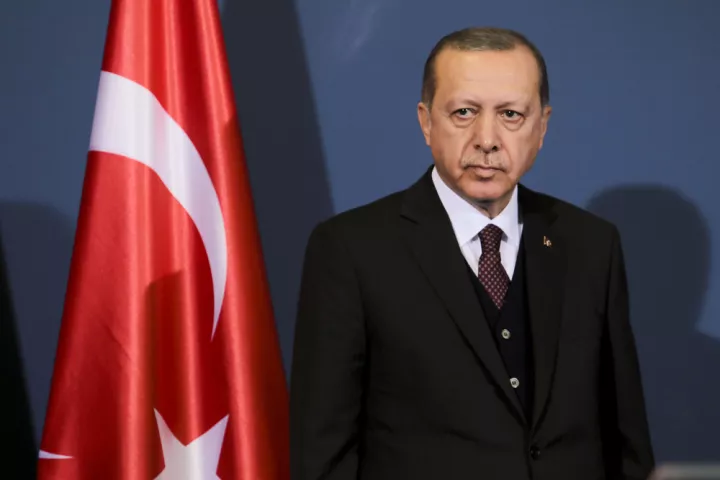
Στο ψήφισμα του ο Οργανισμός Ισλαμικής Συνεργασίας (OIC) υιοθετεί όλα τα θέματα που προωθεί ο τουρκισμός στη Θράκη, δίνοντας εικόνα «καταπίεσης» των μελών της μειονότητας και παραβίασης ακόμη και των στοιχειωδών ανθρώπινων δικαιωμάτων και θέτει μάλιστα την Ελλάδα υπό τη «επιτήρηση» του ζητώντας από τον ΓΓ να παρέμβει προς τη χώρα μας και να υποβάλει νέα έκθεση στην επόμενη συνεδρίαση του OIC.
Mε παρέμβαση της Τουρκίας για μια ακόμη φορά ο Οργανισμός Ισλαμικής Συνεργασίας (OIC), συμπεριέλαβε στις αποφάσεις του, κείμενο το οποίο υιοθετεί όλες τις αιτιάσεις και διεκδικήσεις της Άγκυρας για τη μουσουλμανική μειονότητα στη Θράκη, την οποία καταγράφει ως «Τουρκική», καθώς αναφέρει επίσης και για «μουσουλμάνους των Δωδεκανήσων».
Στο κείμενο των αποφάσεων της 50ης Συνόδου Υπουργών Εξωτερικών που συνήλθε στο Καμερούν παρουσία και του Τούρκου ΥΠΕΞ Χ. Φιντάν, περιλαμβάνεται και ειδική ενότητα με Εκθέσεις, οι οποίες περιέχουν και συστάσεις για μουσουλμανικούς πληθυσμούς ανά τον κόσμο που παραβιάζονται τα δικαιώματα τους. Η λίστα αυτή περιλαμβάνει τη μουσουλμανική κοινότητα στο Μιανμάρ, στην Κριμαία στις Φιλιππίνες και τη «τουρκική μειονότητα στη Θράκη και τον μουσουλμανικό πληθυσμό στη Δωδεκάνησο».
Με δεδομένο ότι ο OIC έχει 57 κράτη μέλη και καλύπτει έναν πληθυσμό σχεδόν 2,1 δισ. ανθρώπων, το γεγονός ότι στις αποφάσεις του υιοθετεί και προβάλει όλη την τουρκική επιχειρηματολογία για τη μουσουλμανική μειονότητα της Θράκης δημιουργεί μια ιδιαίτερα αρνητική εικόνα για τη χώρα μας. Και μάλιστα σε μια περίοδο που οι «ειδήσεις» για υποτιθέμενες παραβιάσεις δικαιωμάτων των μουσουλμάνων τροφοδοτεί αντιδράσεις και ακραίων ισλαμικών φωνών και οργανώσεων.
Συγχρόνως όμως αυτή η παραμορφωτική εικόνα για την κατάσταση της ελληνικής μουσουλμανικής μειονότητας αποσκοπεί στο να πλήξει και τις σχέσεις της χώρας μας με τον Αραβικό και Μουσουλμανικό Κόσμο, είτε ενοχοποιώντας τις σχέσεις αυτές είτε βάζοντας στην ατζέντα τους έστω και εμμέσως θέμα «τουρκικής μειονότητας».
Στο ψήφισμα του ο OIC υιοθετεί όλα τα θέματα που προωθεί ο τουρκισμός στη Θράκη, δίνοντας εικόνα «καταπίεσης» των μελών της μειονότητας και παραβίασης ακόμη και των στοιχειωδών ανθρώπινων δικαιωμάτων και θέτει μάλιστα την Ελλάδα υπό τη «επιτήρηση» του ζητώντας από τον ΓΓ να παρέμβει προς τη χώρα μας και να υποβάλει νέα έκθεση στην επόμενη συνεδρίαση του OIC.
Η Τουρκία επιχειρεί εντατικά να κρατήσει ψηλά στην ατζέντα το μειονοτικό και με τη διεθνοποίηση του, ενώ είναι χαρακτηριστικό ότι το τελευταίο δίμηνο υπάρχει μια συντονισμένη επικοινωνιακή «επίθεση» με τακτικά και συχνά δημοσιεύματα από τα τουρκικά κρατικά ΜΜΕ, Anadolu και ΤΡΤ με αντικείμενο τις δήθεν παραβιάσεις των δικαιωμάτων της «τουρκικής», όπως την ονομάζουν, μειονότητας στη Θράκη
Η απόφαση του Οργανισμού Ισλαμικής Συνεργασίας:
«ΑΠΟΦΑΣΗ 3/50-MM
Σχετικά με την κατάσταση της Τουρκικής Μουσουλμανικής μειονότητας στη Δυτική Θράκη και τον Μουσουλμανικό Πληθυσμό των Δωδεκανήσων.
Η 50η Σύνοδος του Συμβουλίου των Υπουργών Εξωτερικών του Οργανισμού Ισλαμικής Συνεργασίας που πραγματοποιήθηκε στη Γιαουντέ της Δημοκρατίας του Καμερούν στις 29-30 Αυγούστου 2024
Έχοντας πλήρη επίγνωση ότι οι μουσουλμάνοι στην Ελλάδα, γενικά, και η τουρκική μουσουλμανική μειονότητα στη Θράκη της Ελλάδας και ο μουσουλμανικός πληθυσμός στα Δωδεκάνησα ειδικότερα, αποτελούν αναπόσπαστο μέρος του Μουσουλμανικού Κόσμου Χαιρετίζοντας το άνοιγμα ενός τζαμιού στην Αθήνα, το οποίο, ωστόσο, διοικείται από ένα συμβούλιο που αποτελείται από μη μουσουλμάνους,
Υπενθυμίζοντας τις αρχές και τους στόχους του Χάρτη του OIC, τα ψηφίσματα που εγκρίθηκαν από τις ισλαμικές διασκέψεις κορυφής του OIC, τις διασκέψεις των υπουργών εξωτερικών, το Συμβούλιο και τις διεθνείς συμφωνίες, διακηρύξεις και συμβάσεις που ζητούν τον σεβασμό των ανθρωπίνων δικαιωμάτων, συμπεριλαμβανομένων των πολιτικών, κοινωνικών, πολιτιστικών και οικονομικών δικαιωμάτων και της ελευθερίας της λατρείας, και ειδικότερα της Συνθήκης της Λοζάνης, η οποία εγγυάται τα δικαιώματα της τουρκικής μουσουλμανικής μειονότητας στη Δυτική Θράκη της Ελλάδας, δυνάμει της οποίας έχουν το δικαίωμα να χρησιμοποιούν τη μητρική τους γλώσσα, δηλαδή την τουρκική, και ασκούν τις θρησκευτικές τους τελετές,
Έχοντας εξετάσει την έκθεση του Γενικού Γραμματέα σχετικά με την κατάσταση των μουσουλμανικών κοινοτήτων και μειονοτήτων σε κράτη μέλη που δεν είναι μέλη του OIC:
1. καλεί την Ελλάδα να διασφαλίσει τον πλήρη σεβασμό όλων των ανθρωπίνων δικαιωμάτων, συμπεριλαμβανομένης της θρησκευτικής ελευθερίας για όλους τους μουσουλμάνους που ζουν στη χώρα
2. καλεί την Ελλάδα να λάβει τα κατάλληλα μέτρα για την προάσπιση των βασικών δικαιωμάτων και ελευθεριών καθώς και της ταυτότητας της τουρκικής μουσουλμανικής μειονότητας που προέρχονται από διμερείς και διεθνείς Συμφωνίες
3. ζητεί εκ νέου από την Ελλάδα να αναγνωρίσει τους εκλεγμένους μουφτήδες της Ξάνθης και της Κομοτηνής ως επίσημους μουφτήδες
4. καλεί την Ελλάδα να λάβει τα αναγκαία μέτρα για την εκλογή των διοικητικών συμβουλίων των Βακουφίων από την τουρκική μουσουλμανική μειονότητα, προκειμένου να διασφαλιστεί η αυτοδιοίκησή τους
5. τονίζει την ανησυχία του για την πρακτική της Ελλάδας όσον αφορά τον διορισμό 240 ιμάμηδων/θρησκευτικών εκπαιδευτών, παρά τις αντιδράσεις της τουρκικής μουσουλμανικής μειονότητας
6. παροτρύνει την Ελλάδα να εφαρμόσει τις ετυμηγορίες του Ευρωπαϊκού Δικαστηρίου Ανθρωπίνων Δικαιωμάτων (ΕΔΑΔ) σχετικά με τις μη κυβερνητικές οργανώσεις (ΜΚΟ) της τουρκικής μουσουλμανικής μειονότητας
7. παροτρύνει εκ νέου την Ελλάδα να αποκαταστήσει τα δικαιώματα ιθαγένειας δεκάδων χιλιάδων μελών της τουρκικής μειονότητας από τα οποία αφαιρέθηκε η ιθαγένεια βάσει του άρθρου 19 του νόμου αριθ. 3370/1955 περί ελληνικής ιθαγένειας
8. επαναλαμβάνει την πρόσκλησή του προς την Ελλάδα να λάβει τα αναγκαία και επείγοντα μέτρα, σε διαβούλευση με την τουρκική μουσουλμανική μειονότητα, για την αντιμετώπιση των εκπαιδευτικών ζητημάτων της, τα οποία συνδέονται επίσης άμεσα με την κοινωνικοοικονομική ανάπτυξη της περιοχής στην οποία ζει
9. ζητεί από τον Γενικό Γραμματέα να κινήσει έρευνα ιδίως σχετικά με τα ζητήματα που θίγονται στο παρόν ψήφισμα και να υποβάλει σχετική έκθεση στην τεσσαρακοστή έκτη σύνοδο του Συμβουλίου των Υπουργών Εξωτερικών·
10. χαιρετίζει την έναρξη για το ακαδημαϊκό έτος 2016-2017 ενός «Προγράμματος Ισλαμικών Σπουδών» στο Πανεπιστήμιο Θεσσαλονίκης·
11. σημειώνει τη στήριξη που παρέχει το Πανεπιστήμιο Al-Azhar σε θρησκευτικά ζητήματα και θρησκευτικά σχολεία για μουσουλμάνους στην Ελλάδα·
12. καλεί τον Γενικό Γραμματέα να επαναλάβει τον διάλογο και τη συνεργασία με την κυβέρνηση της Ελλάδας με στόχο την ενίσχυση της ευημερίας και της ευημερίας των μουσουλμάνων στην Ελλάδα, ιδίως της τουρκικής μουσουλμανικής μειονότητας και του μουσουλμανικού πληθυσμού στα Δωδεκάνησα
13. Ζητεί από τον Γενικό Γραμματέα να παρακολουθήσει την εφαρμογή του παρόντος ψηφίσματος και να υποβάλει σχετική έκθεση στην 51η Σύνοδο του Συμβουλίου των Υπουργών Εξωτερικών».
ΠΗΓΗ: Liberal.gr
-
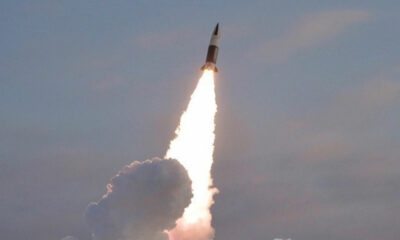
 Ιράν4 ώρες πριν
Ιράν4 ώρες πρινΚόκκινος συναγερμός στο κεντρικό Ισραήλ! Εκτοξεύτηκε βαλλιστικός πύραυλος από την Υεμένη – Αναχαιτίστηκε με επιτυχία λέει ο IDF
-

 Video10 ώρες πριν
Video10 ώρες πρινΑσταμάτητο το Ισραήλ! Βομβάρδισε Ρωσική βάση στην Συρία
-
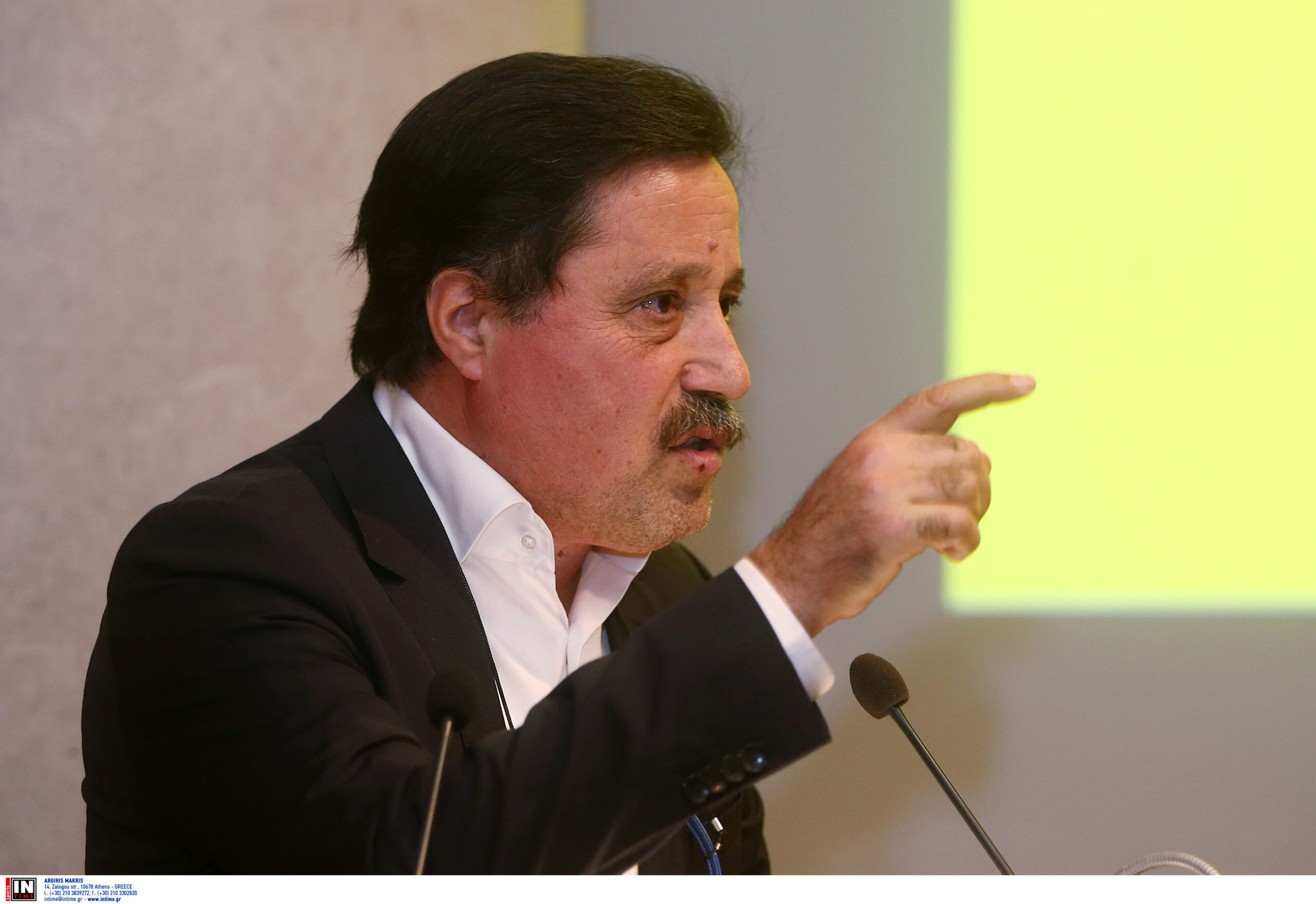
 Video8 ώρες πριν
Video8 ώρες πρινΙσραήλ: Αν χτυπήσει πυρηνικά, αρχίζει η καταστροφή
-

 Εξωτερική Πολιτική2 ημέρες πριν
Εξωτερική Πολιτική2 ημέρες πρινΣτο επίκεντρο η ελληνοαμερικανική συνεργασία σε συνάντηση του Μητσοτάκη με Αμερικανούς γερουσιαστές στα Χανιά
-
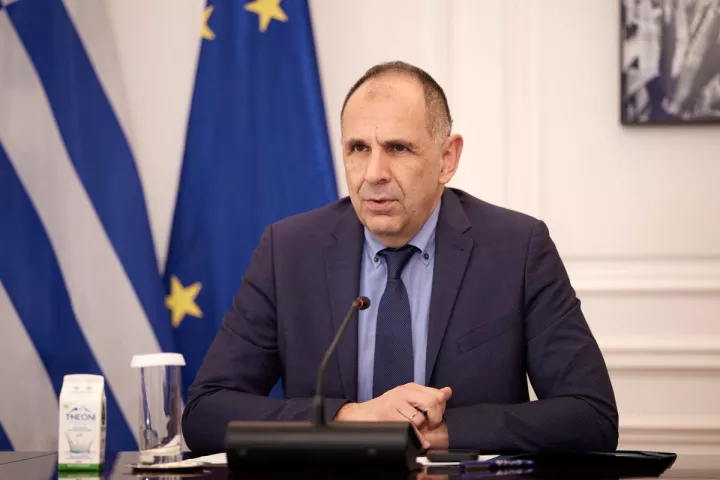
 Αναλύσεις2 ημέρες πριν
Αναλύσεις2 ημέρες πρινQuo vadis κύριε Γεραπετρίτη;
-
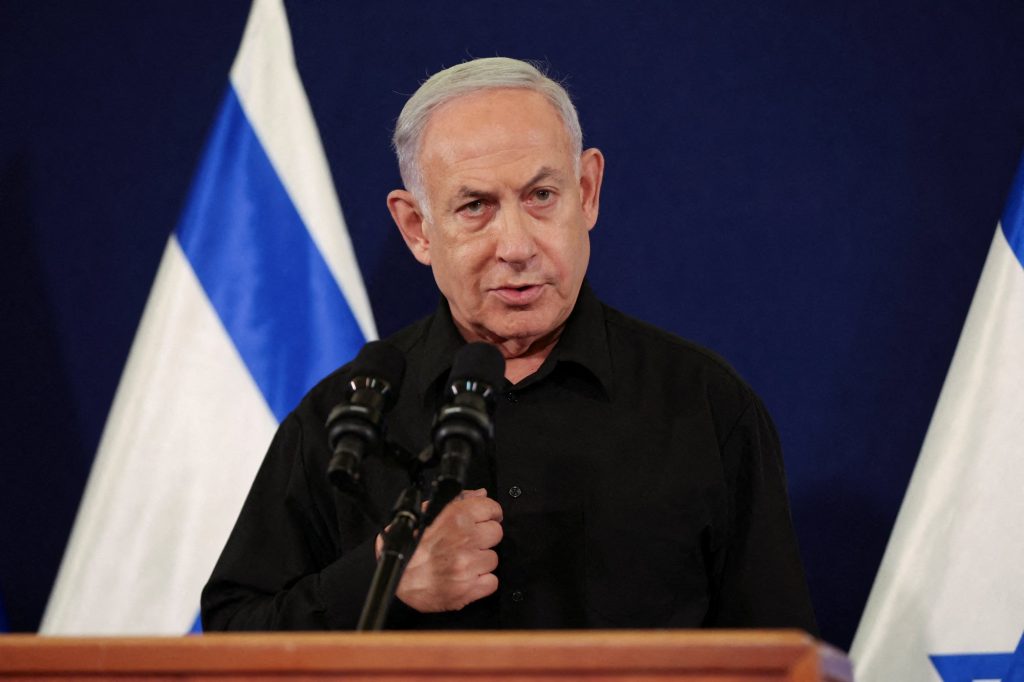
 Ιράν2 ημέρες πριν
Ιράν2 ημέρες πρινKίνηση υψηλού ρίσκου του Ισραήλ! Δεν αποκλείει χτύπημα στα πυρηνικά του Ιράν ο Νετανιάχου – Πότε θα χτυπήσει;
-

 Γενικά θέματα2 ημέρες πριν
Γενικά θέματα2 ημέρες πρινΜία νέα αρχή για το «Γεωπολιτικό»
-

 Αστυνομία2 ημέρες πριν
Αστυνομία2 ημέρες πρινΑποκάλυψη! Ειδικό λογικό ισραηλινής κατασκευής για μαζική αναγνώριση προσώπων αποκτά η ΕΛ.ΑΣ.







